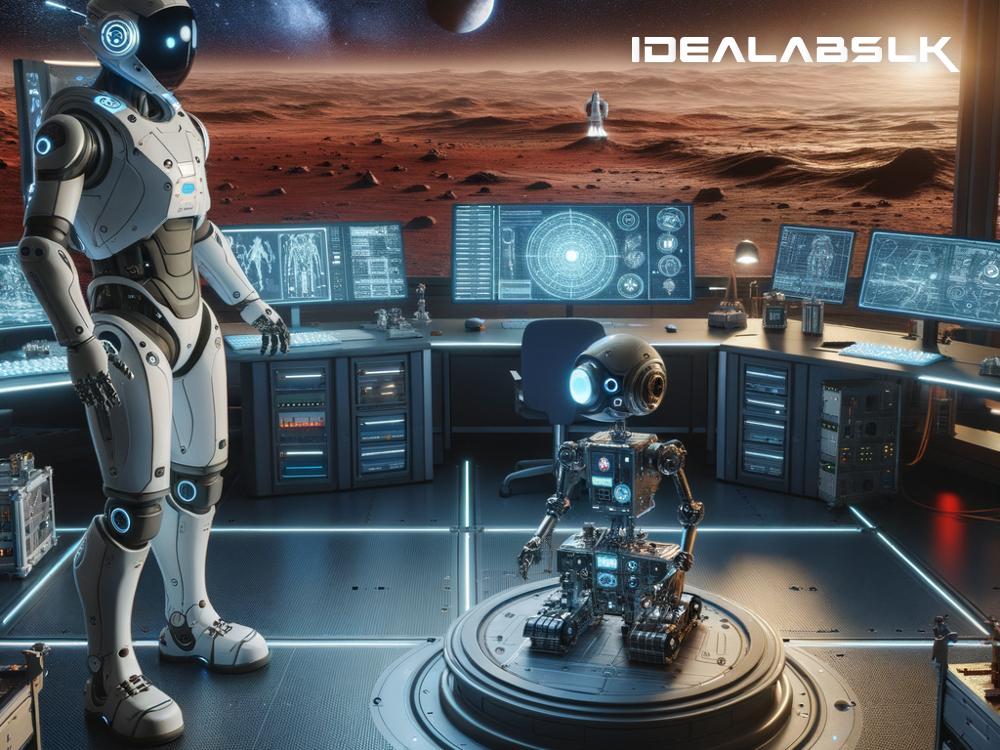Exploring the Stars: How Space Exploration Will Spark New Robot Revolution by 2025
Space, the final frontier, has always been a playground for the curious and brave. As we set our sights beyond our pale blue dot, the challenges of exploring the vast expanse of space demand not just human courage but also the aid of advanced technology. Robotics and autonomous systems, the unsung heroes of space exploration, are about to take a giant leap, thanks to this interstellar ambition. By 2025, we’re looking at a future where robots don’t just assist humans; they lead the way into the unknown.
Robots: The Pioneers of the Cosmos
Imagine sending humans to explore a distant asteroid. The risks are high, with the journey filled with unknowns. Now, picture a robot embarking on this mission instead. Robots, unlike humans, don’t need food, water, or oxygen. They can withstand extreme temperature changes and radiation levels that would be fatal to humans. It’s clear why robotics and autonomous systems are vital for space exploration. By 2025, these robots will not just be tools but pioneers, venturing where humans can’t yet go.
Advancements in Robotics: The Space Effect
Space exploration pushes technology to its limits. The harsh conditions of space force innovations that make robots smarter, more resilient, and more autonomous. By 2025, thanks to missions to Mars, the Moon, and beyond, robots designed for space will see advancements in three main areas:
- Autonomy: Robots will be smarter, capable of making decisions without waiting for instructions from Earth. This is crucial for exploring distant worlds, where communication delays can be significant.
- Durability: New materials and engineering breakthroughs will make robots tough enough to endure the harsh conditions of space for longer periods, paving the way for extended missions.
- Dexterity: Future space robots will have improved mobility and flexibility, allowing them to navigate rough terrain and manipulate objects with precision, essential for collecting samples and building structures on alien worlds.
The Ripple Effects on Earth
The cool part? The advancements in robotics and autonomous systems fueled by space exploration will have a huge impact right here on Earth. Here’s how:
- Disaster Response: Imagine robots that can enter disaster zones — areas too dangerous for humans — to search for survivors or assess damage. The tech developed for space robots will make this possible.
- Medical Field: The precision and durability required for space will lead to the development of robots that can perform complex surgeries with minimal human intervention or assist in areas with limited medical facilities.
- Environmental Monitoring: Robots that can survive and operate in the extreme environments of space can easily monitor volcanic activity, deep-sea ecosystems, or toxic waste sites on Earth, providing valuable data while keeping humans safe.
Challenges Ahead
The journey isn’t without its obstacles. Developing robots that can operate autonomously in space requires significant advancements in AI, which poses both technical and ethical challenges. There’s also the high cost of space missions and the requirement for international cooperation to ensure space remains a realm for peaceful exploration and innovation. But the potential benefits far outweigh the challenges.
Looking to 2025 and Beyond
As we look to 2025, the integration of robotics and autonomous systems in space exploration is set to revolutionize not just how we explore the universe but also how we live on Earth. These advances will lead to new industries, improve existing technologies, and perhaps most importantly, help address some of our planet’s most critical challenges.
The countdown has begun, not just for the next big space mission, but for a future where robots and autonomous systems take us beyond the limits of our imagination. The cosmos is the ultimate testing ground, and in conquering its challenges, we pave the way for a world where humans and robots work together to explore the stars and improve life on Earth. Get ready for a robot revolution, fueled by the stars, that will change our world in ways we can only begin to imagine. By 2025, the sky is not the limit; it's just the beginning.
So, keep your eyes on the stars and your feet on the ground as we embark on this exciting journey. Space exploration is about to take robotics and autonomy to new heights, bringing the future to our doorstep, and it’s a journey you won't want to miss.

